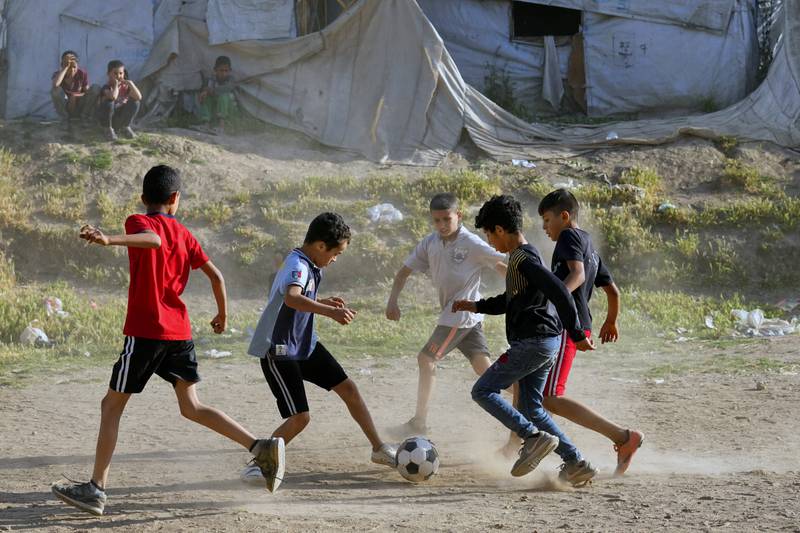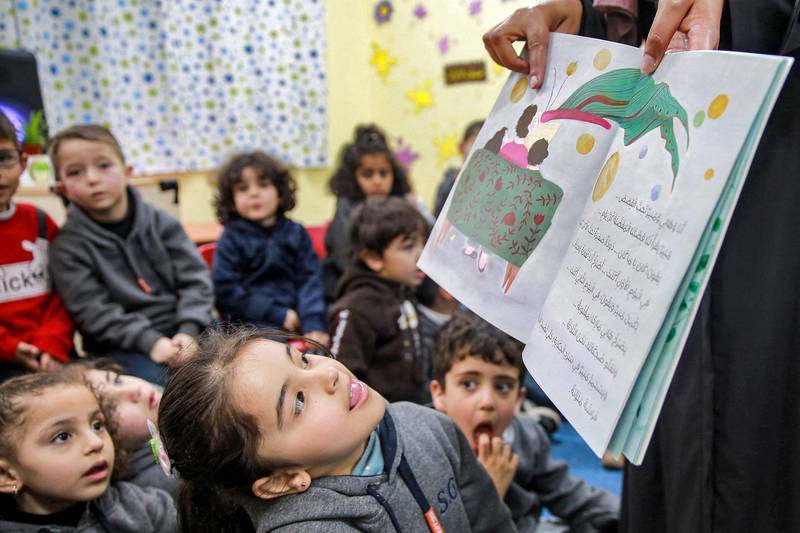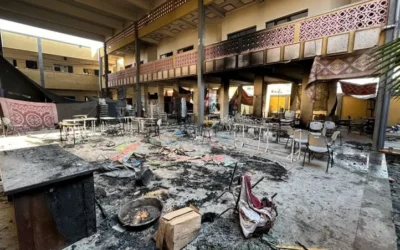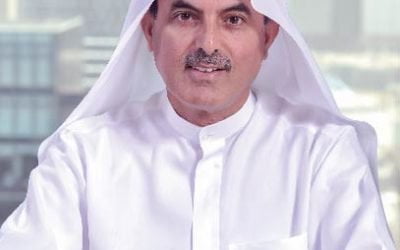Refugee education is a high-yield investment for host countries
Author: H.E. Abdul Aziz Al Ghurair
Publication: The National
Daily, we find ourselves faced with discouraging statistics that reflect the desperate circumstances of a rapidly escalating global refugee crisis, which notably affects our region. Earlier this year, the annual UNHCR Islamic philanthropy report unveiled an alarming reality: that out of a staggering 100 million individuals who have had to flee their homes, nearly half originate from, or are currently residing within, Arab states. This alarming figure represents a distressing, twofold increase compared to a mere decade ago.
Unfortunately, as the numbers of the displaced people increases and their plight persists, we witness a parallel rise in the magnitude and gravity of prejudice and discrimination. The challenge that lies before us surpasses the mere task of offering refuge to those in need; it now encompasses the need to cultivate a global environment that embraces diversity because it is good for global recovery, development and growth.
To truly address this situation, we must recognise the economic importance of refugee integration. By embracing and empowering refugees, we can unlock their immense potential and create a future that values diversity at its core.
The economic implications of supporting refugees may seem shockingly high at first, often leading to concerns that their acceptance will burden the economy of host countries. However, it is essential to perceive these costs as shorter-term investments in national, regional and global development. There is mounting evidence showing that the income generated when refugees enter the labour market is larger than the initial cost.

Evidence shows the income generated when refugees enter the labour market is larger than the initial cost
A prime example of this can be seen in the significant contributions the Syrian refugees made to the Turkish economy at the end of 2017, amounting to $4.7 billion, or nearly 2 per cent of the country’s GDP. In countries around the world that enable refugees to work without restrictions, the economic benefits of refugee resettlement are evident, leading to gains in GDP and median income.
Nonetheless, these communities are underserved, and in the effort to expand access to basic services for migrants, education gets often overlooked as a fundamental pillar of development and well-being. The challenges of economic access and social inclusion cannot be overcome without access to quality education.
Failing to provide learning opportunities for displaced youth will have profound consequences, and millions will risk becoming a lost generation. Unfortunately, the regional reality concerning refugee education is disheartening. In Jordan and Lebanon, under 5 per cent of refugees complete secondary education; for Syrian refugees, it plummets to under 2 per cent.
In response to this dire need, I established the Abdul Aziz Al Ghurair Refugee Education Fund, the mission of which is to guide vulnerable young individuals on their own, unique pathways to improved livelihoods through education. Our aim is to foster their intellectual growth and character development, and to instil a hopeful perspective, enabling them to become productive, self-reliant members of their communities.
To help change how people see refugees and help them integrate into society, it’s important to empower them to participate in the economy. When refugees lack empowerment, it slows down their integration and progress. This is a big challenge, and it requires everyone to work together and find long-lasting solutions to the problems caused by migration. At the Fund, we recognise the need for strong and strategic collaboration with multiple partners across multiple sectors and geographies. That is why we work with 20+ partners from all over the world to ensure that we are exploring the right solutions to leverage these individuals’ talent, creativity and ingenuity.
Our partnerships extend to the private sector, where we have forged partnerships and collaborations that have secured remote work opportunities for refugee youth. This approach eases the strain of competition for local job opportunities, providing viable alternatives for sustainable livelihoods. An example of this is the SE (for software engineering) Factory in Lebanon, where nearly 50 per cent of refugee graduates have secured remote employment with global employers, showcasing the potential of such initiatives.
Globally, migration is at an all-time high with no end in sight. However, if managed well, human movement isn’t a threat but an inevitable opportunity that holds the potential to promote sustainable development. Countries and their private sectors only stand to gain economically and socially if they think creatively about how to integrate refugees into mainstream society.
With effective governance and proactive policies, refugees would be perceived as advantageous human capital, and not a burden. By enhancing their ability to contribute to local economies through educational and professional development, we could gradually normalise migration and identify it as a sincere strategy for adapting to change.
Indeed, viewing the refugee crisis through a lens of investment and integration rather than cost and exclusion can unleash a wealth of untapped potential and harmonise tensions. This is because refugees are not merely statistics to be managed; they are resilient individuals capable of contributing significantly to their host countries when given the opportunity.
As we mark World Refugee Day, we can recognise that our collective strength lies in our diversity. Regardless of circumstance, everyone has a role in driving our society forward. This is not merely driven by compassion, but by strategic thinking. By embracing the potential of refugees, we can turn the tide on the crisis, foster economic growth and create a more prosperous society in terms of wealth, compassion, diversity and global solidarity.



